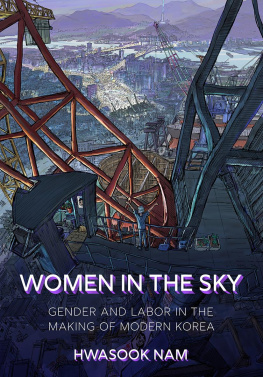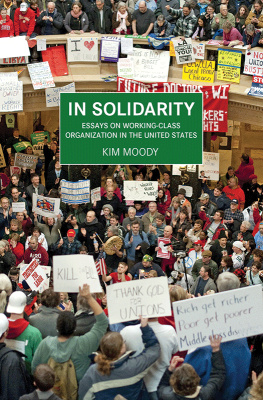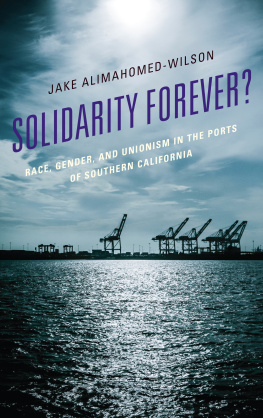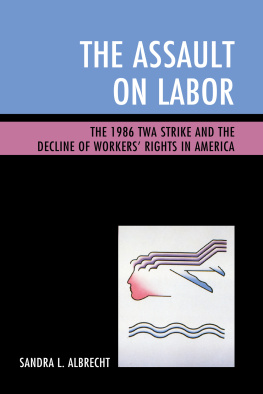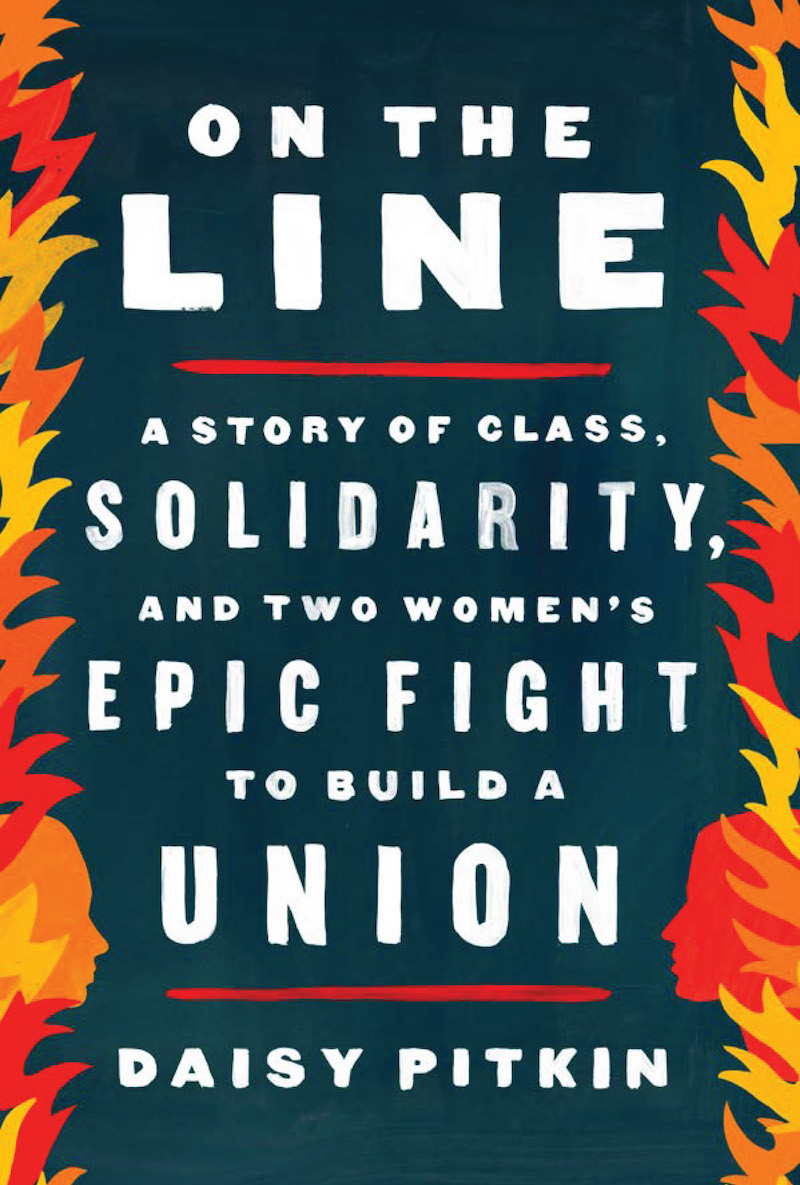On the Line

A Story of Class, Solidarity, and Two Womens Epic Fight to Build a Union

Daisy Pitkin

ALGONQUIN BOOKS OF CHAPEL HILL 2022
In memory of Eleazar Torres Gomez
In honor of every person who works in danger today
But mostly were forgetting that were dead stars too, my mouth is full of dust and I wish to reclaim the rising
to lean in the spotlight of streetlight with you, toward whats larger within us, toward how we were born.
Look, we are not unspectacular things.
Ada Limn, Dead Stars
Unions are such a pain in the ass, really. Anyone who has dealt with a union understands.... But unions, Americans may finally be coming to realize, are absolutely essential to democracy.
Jane M c Alevey,
A Collective Bargain, Unions, Organizing, and the Fight for Democracy
A Note from the Author
This book is a work of nonfiction and, in part, a memoir, which is to say that, while it relies heavily on historical sources and notes and legal documents, it also relies on my memory and personal interpretation of events. I have reconstructed this story, timeline, and dialogue to the best of my ability. Some minor scenes have been compressed in the interest of space. Names and identifying information for some people have been changed in order to protect their privacy.
Any royalties from this book will be shared with Alma, la polilla mayor.
Contents

1: Las Polillas

The first week I arrived in Phoenix, I started to dream about moths. We were sleeping only a few hours a night, if at all, preparing the organizing campaign at your factorygathering names and addresses of your coworkers and then scouting their residences so we knew which had fences with locked gates, which had snarling dogs in the yard, which had multiple units, making it uncertain on which door wed need to knock when the time came. We mapped your coworkers in this way, at their homes scattered across the city, trying to put together a plan that would make it possible to talk to a majority of them about forming a union. A blitz, we called it, to get a hold of as many people as possible in a day or two, before the company you worked for could figure out what was going on.
During this time, the other organizers and I were staying at the Days Inn on East Van Buren Street, an aging midcentury motel nestled between a used-car lot and a strip club called Blue Moon. I would wake up in the strange room not knowing where I was, not remembering having fallen asleep. I left the TV on a lotthe sound of it made slipping in and out of awakeness a little less jarring. The moths never arrived in the dream. That is, I didnt see them flying in from somewhere else. I didnt see them land on my body. They covered me suddenly, as if they had always been there. Im prone on the grimy floor at the foot of the motel bed. I open my eyes. Lift my head. Look down at my body. Every cell of skin is carpeted with moths. Every inch gray-white-brown. Scaly. Dusty. Fluttering.
Years later, when I was long gone from the union because I had gotten so tired and sick and sad over watching (and causing, I know) what we had fought to build come apart, and I had somehow decided that feeling these things made it okay for me to stop organizing, I was working at a bar in Tucson that switched from having their towels and napkins cleaned at a small union laundry to a bigger, regional nonunion laundry. I had taken this job in part because it was a world away from the union campaigning I had been leading all across the country, or so I thought, but of course, bar rags need to be washed. I protested the switch to the manager and then to the owner and the landlord and even to one of the bars investors when she came in for a glass of wine, but the nonunion laundry was cheaper, and I wasnt in contact with anyone at the union anymore and didnt have the standing with my coworkers at the bar to organize any sort of fight. One day, the new, nonunion laundrys driver showed up to empty the dirty-linen locker out back, and I recognized him as one of the drivers whod fought against the union at your laundry during our campaign there. He was one of the nastier ones, and I could still see him, sweaty and red-faced, yelling Bitches! and Cockroaches! and a litany of other slurs from his truck window as he drove past us in the parking lot where we handed out our leaflets. He didnt recognize me, or he didnt say anything if he did.
Later that week, I went to the emergency room with a high fever and a hot throb in my back. Id been to the hospital three times in two months, each time requiring a dose of morphine in order to withstand the hurt of infection, and once, the passing of kidney stones. As the nurses pushed the drug into the IV, my face grew heavy, my head hummed, my body stiffened and shook, hypothermic, as the refrigerated drip entered my bloodstream. This was eight years after we launched the campaign at your laundry. Three and a half years since we had spoken. And still I thought of you, Alma, as I asked for one blanket and then another and another. I thought of you as the nurses pulled them from a metal cabinet in the corner of the curtain-enclosed stall and shook the thin material open in the air space above the bed, as the blankets fluttered down, each one adding a layer to the thickening cocoon that enclosed my body. I thought of you and of Santiago, and Anala, and Antonia, and Reina, and Cecilia. That hospital, University Medical Center, contracts linen service from your industrial laundry. You touched those blankets. You touched the sheets on the bed, the pillowcase, the gown I wore. And after I was released, the linens that composed this cocoon would be placed into a plastic trash bag and loaded into a blue rolling bin with other linen-filled trash bags, and the bin would be loaded onto one of your factorys laundry trucksa big one, an eighteen-wheeleralong with many dozens of other blue bins, and the truck would make its way up the I-10 from Tucson to Phoenix, and the bins would be unloaded into the soil-sort department, where you would likely be working, and the plastic bag would be ripped open by someone working the front of the line, who would probably not be you but might be Santiago, and the linens would travel down the conveyor belt to the position where you probably would be working, and you would touch them again.
I was alone in the hospital that night. And though you and I spent years together sealing ourselves off from any mention of fear, I will admit that I was afraid. Afraid that no one seemed to know what was causing the infection, afraid that it would spread to other parts of my body. The near contact with you, via the rough fabric of sheets and blankets that belonged to neither of us, was a comfort. I remembered how your laugh was sharp and loud when you were afraid. From inside the cocoon of blankets, I heard it.


